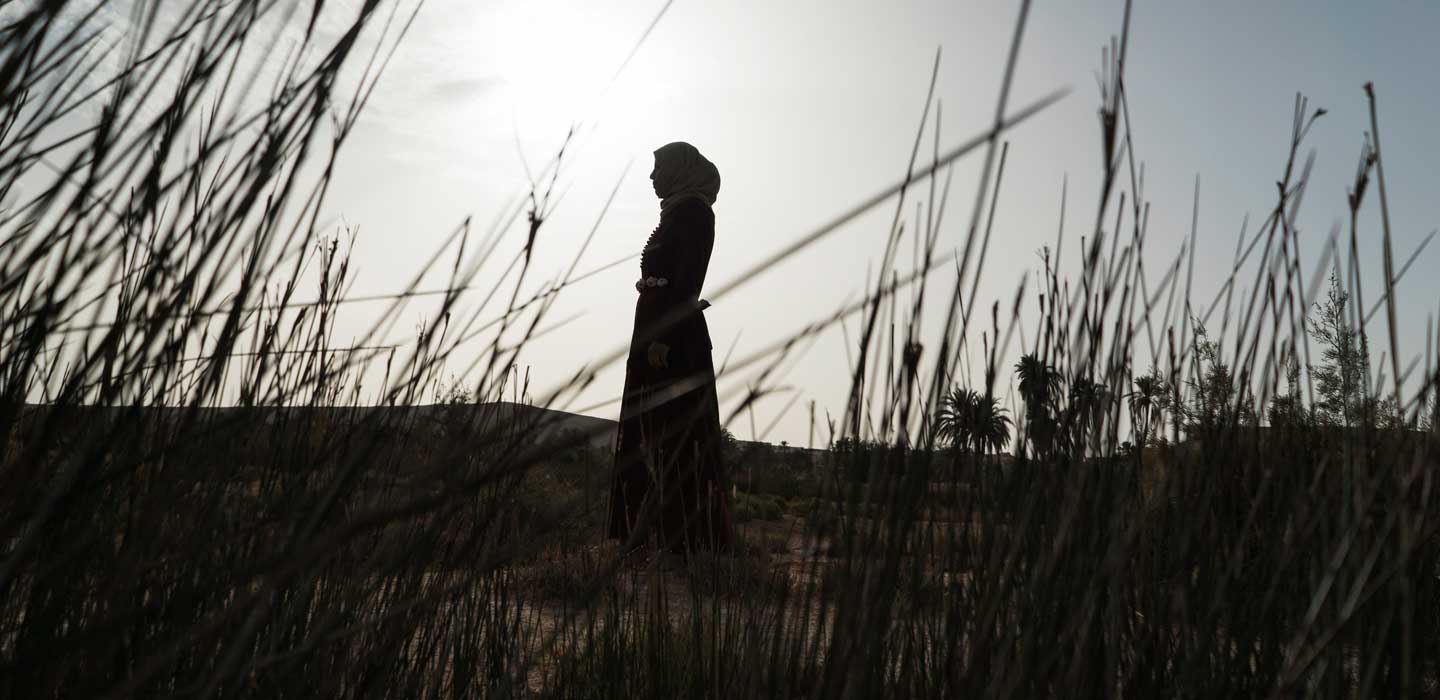Photo essays
Photo essays

Photo essays
Manual Submenu Topics
Search Results Filters
Search Results
Meet the families farming their way towards a sustainable future
Family farms are key to building sustainable food systems – and to achieving zero hunger worldwide. Let's meet some of the families around the world whose farms are thriving with IFAD's support.
2021 Gender Awards: Five IFAD-supported projects transforming women’s roles in rural communities
Every year, we recognize a project from each of our regions that empowers rural women and girls. Here, we present the winners of the 2021 Gender Awards.
Supporting small-scale farmers around the world
2021 brought immense challenges to all corners of the world. Nevertheless, IFAD has been busy doing what we always do: supporting projects that improve the lives of rural small-scale farmers.
How nature based solutions are transforming lives
Nature-based solutions is a concept that highlights the fact that people can proactively protect, manage or restore natural ecosystems, while significantly contributing to addressing six major challenges: climate change, food security, water security, human health, disaster risk, and social and economic development.
Rural Youth Innovation Award honours youth leaders fighting COVID-19
IFAD believes in the tremendous innovative capacity of rural youth – and we take seriously our responsibility to support young people in their constant search for change and innovation. That’s why this year’s Rural Youth Innovation Award in Latin America and the Caribbean, a project financed by the China-IFAD SSTC Facility, focused on initiatives led by young people fighting the pandemic.
Creating smoke-free kitchens in Nepal through Indigenous community empowerment
EcoHimal Nepal is a national non-government organization that works with rural mountain communities. They developed a project with NELHOS, another local organization funded by IFAD, in Rukuma and Chepuwa villages of Bhotkhola Rural municipality to develop ‘’smoke-free kitchens’’.
Upholding cultural traditions in Tonga
An old Tongan proverb says that a successful village lives together, works together, and helps one another. This is especially true for handicrafts, an integral part of traditional Tongan culture.
Fai fatongia: One island’s path to food security, COVID mitigation and climate resilience
In the Kingdom of Tonga, fai fatongia rules the day. Under this principle, which translates to “fulfilling one’s responsibility,” Tongans traditionally put the collective good first and their individual needs second.
Rural women in Latin America take control of food production – and their own development
All across Latin America, rural women are taking charge of their communities’ food production – and their own economic and personal development.
Women as changemakers for nutrition in the hills of Lao PDR
The rural uplands of the Lao People’s Democratic Republic are home to generations of proud family farmers who depend on small-scale agriculture, with many still using traditional farming techniques.
Youth leaders working towards transformative rural development
From climate action groups to political institutions, youth are taking on leading roles and bringing new perspectives into the table – showing they are not only the future, but also the present.
Back to the Roots: Innovating with sustainable gastronomy
Photo contest shows how Latin American and Caribbean rural youth see their own lives
It’s not often that we have the opportunity to see how rural people see themselves. International organizations like ours tell their stories armed with cameras, notebooks and laptops – and, of course, our own point of view, which is important to compare with theirs.
Ensuring environmental sustainability and building resilience to climate change
Extreme weather events, such as droughts, storms and floods, are putting pressure on the ecosystems that farmers depend on, as are gradual processes such as rising sea levels and melting glaciers.
The making of a turning point: A rural Chinese women’s cooperative joins the COVID-19 fight
Teach me how to fish and I will transform my life – and my community
Six ways investing in rural communities makes people healthier
Malnutrition causes health problems and losses in economic productivity. Over the course of their lifetimes, malnourished individuals can earn 10 per cent less than those who are well-nourished.
The faces of empowerment
Rural women are key agents in the effort to achieve the economic, environmental and social transformations required for sustainable development. Ensuring their empowerment is crucial not only to their own well-being, but that of their families and communities.
Don’t count your chickens before they hatch
Cultivating resilient communities in rural Guinea-Bissau
Indigenous communities in Malaysia building capacity for resilience through IPAF
The impact of a value chain approach in Nigeria
The IFAD-funded Value Chain Development Programme in Nigeria assists cassava and rice smallholder farmers through a value chain approach to enhance productivity, promote agro-processing and increased access to markets. The programme aims to transform the agricultural sector of rural Nigeria by achieving food security, increasing incomes and creating new employment opportunities.
The value of indigenous tree species in Ethiopia
Improving livelihoods of women in south west Ethiopia
Gendo Gembela Tsire is a women’s group in Chencha district, Ethiopia who are demonstrating the process of making kocho (to make traditional flatbread) and bula (a flour blend prepared as a porridge) from the enset crop.